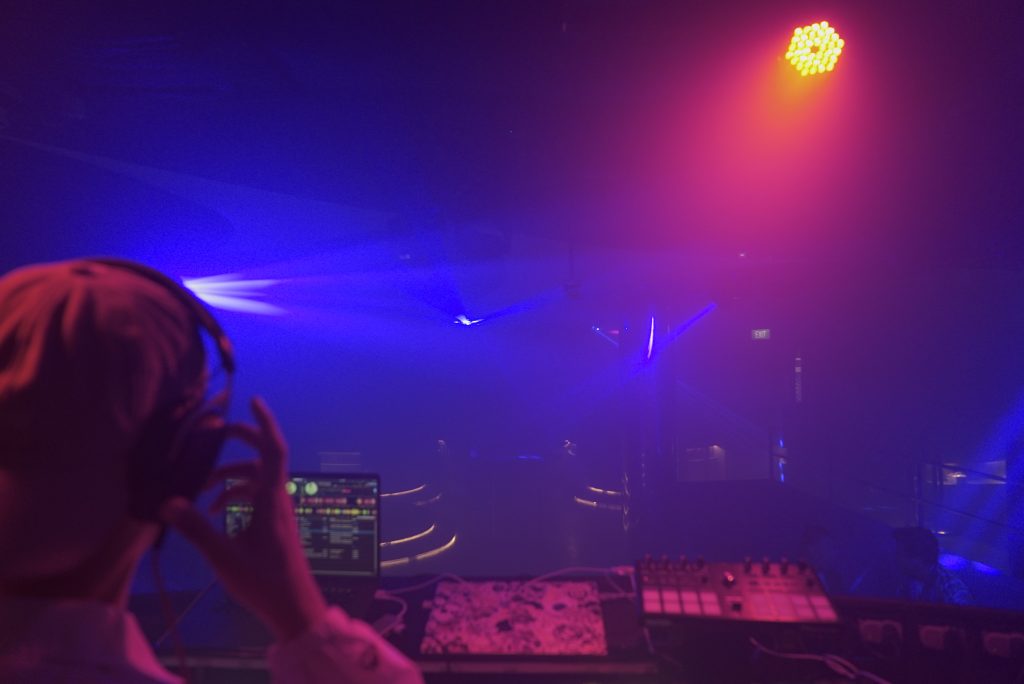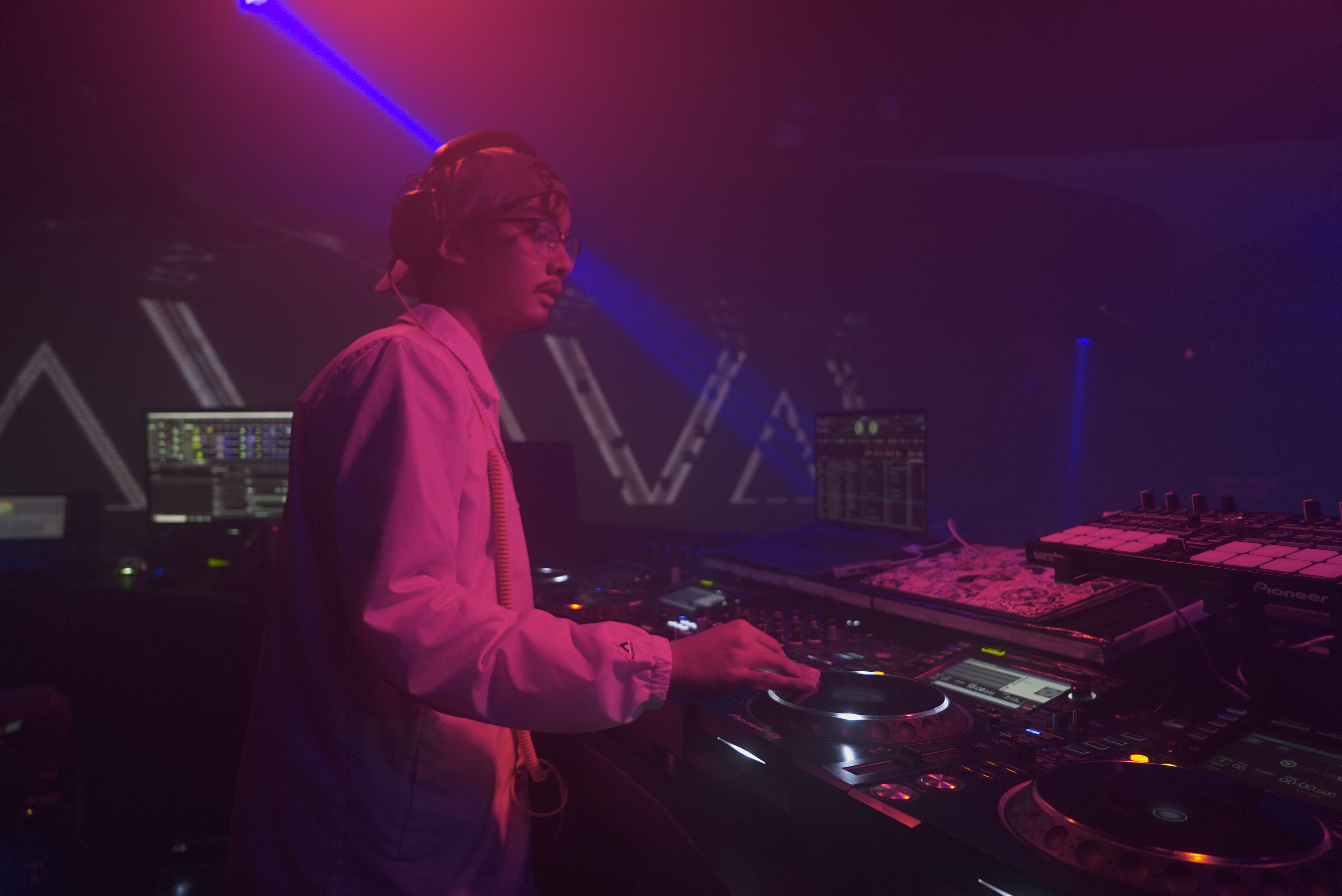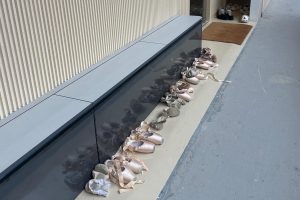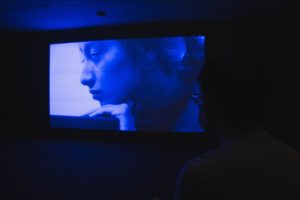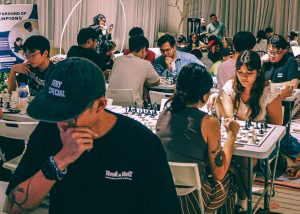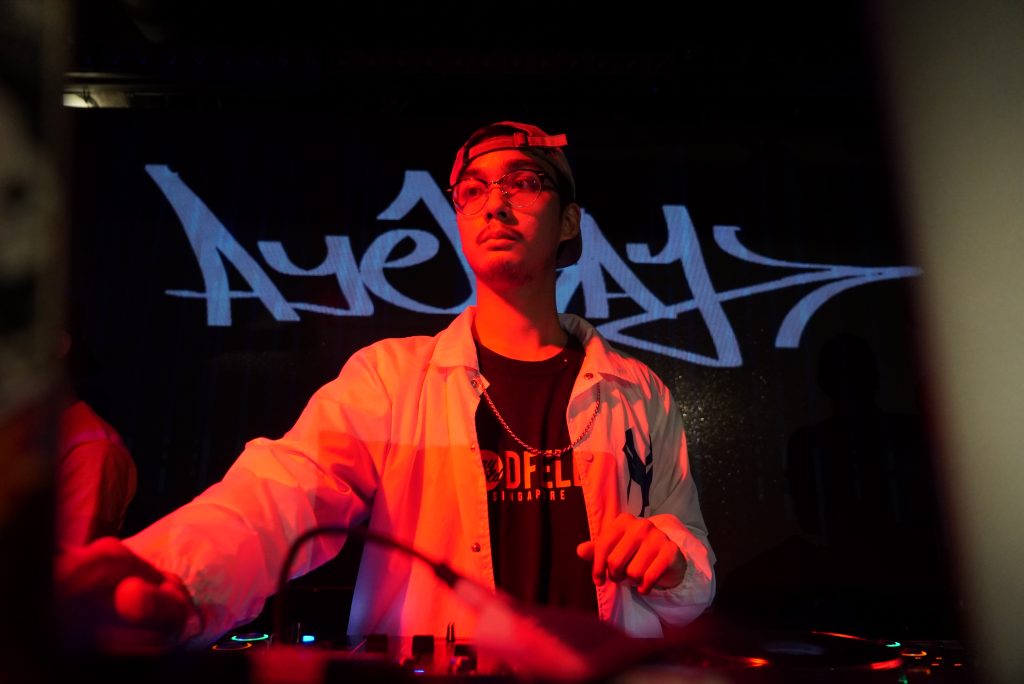
At 9:30 AM, Akmal swaps his t-shirt and kicks for a white shirt and dress shoes, combs his loose mop of hair to one side, and heads to Raffles Quay for his day job as an admin assistant at KPMG. Eight hours of mind-numbing data entry later, instead of returning home, he makes his way over to the studio for some practice on the discs. Sometimes, he jams until four in the morning before heading home to crash—to be up by nine again the next day.
Tonight, Akmal is at the studio rehearsing for his club DJing debut, opening at 11 PM for Club Avry.
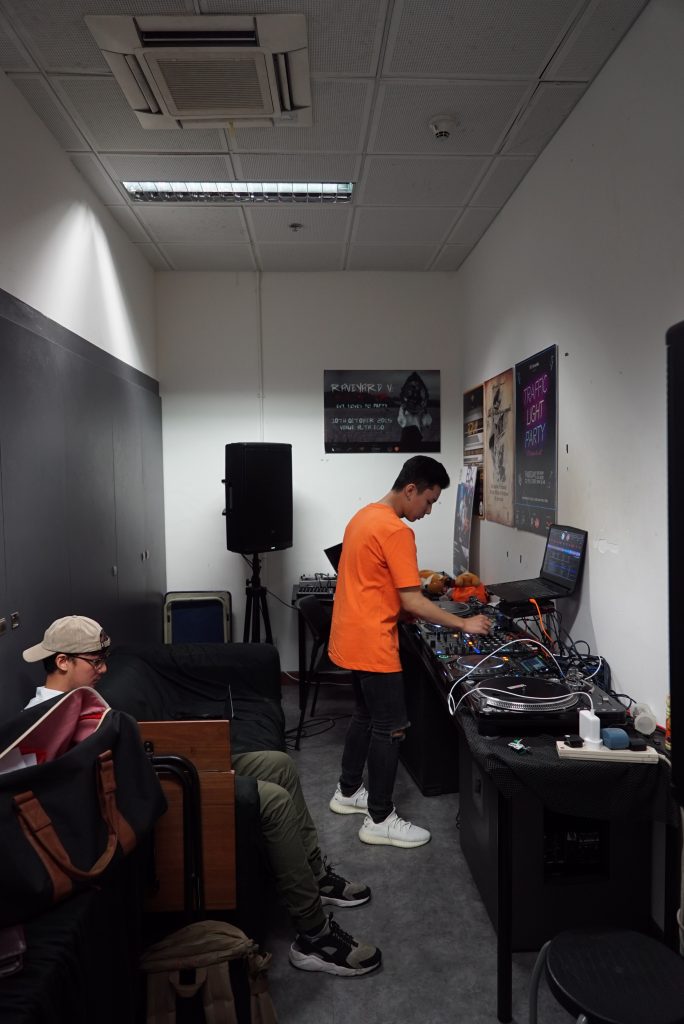
Nicholas, known as DJ Kong (pictured in orange), is president of Stereometa; he’s the one who contacted Akmal to play at Avry, alongside several other DJs.
To me, his schedule of work, rehearsals, and performances seems gruelling. Akmal puts up with it for the sake of his one true love.
“From young, I’ve always loved music. I used to dance, watch MTV every week. Since primary five, I wear headphones wherever I go. I got scolded for that so many times,” he laughs.
Akmal didn’t always have disco dreams. As a kid, he thought DJing was “ah-beng type stuff”, and he never intended to pick it up. Ironically, it was a teacher’s scolding that changed his mind.
“My teacher said, ‘hey, Akmal, you think you DJ ah?!’ because I was wearing those headphones. For some reason that stuck in my head. There was a chalet coming up, so I thought, how about I play music for them?”
After continuously DJing at school events for several years, Akmal was eventually asked to do private functions and dinners as well. DJing at clubs, however, is a whole ‘nother level. He was only able to get here with a great deal of support.
“All the DJs, dancers, MCs, graffiti writers, anyone involved in Singapore hip-hop culture—they are my family; I wouldn’t be here without them.”
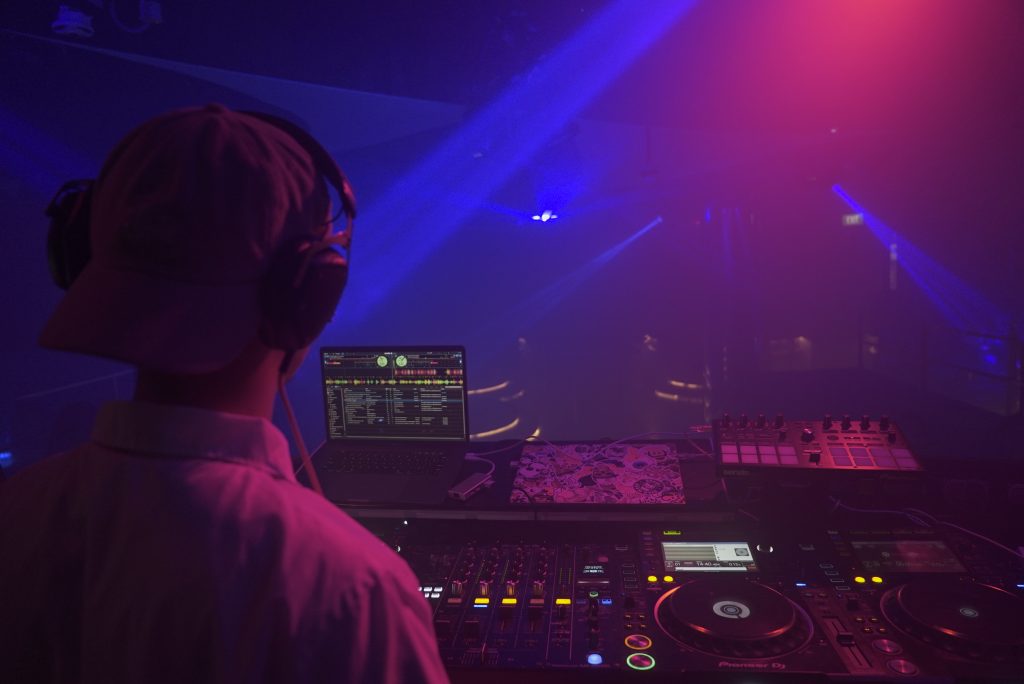
Akmal admits that DJing is an expensive pastime, and he was only able to attend EtracX by studiously saving his National Service allowance. In fact, Akmal is still paying hand over fist for his DJing equipment.
“Every day, at work, just two dollar nasi goreng. And coffee.”
Soon, we leave the studio and head for the club. DJing at such a venue seems to me like a relatively easy task: hook up the laptop, pull up the playlist, and hit spacebar. As we walk, Akmal explains that this isn’t the case:
“You have to think about how you want to brand your night. You wanna keep the vibe going, so you’re thinking on the spot: what do I play next, who’s on the dance floor? A DJ has to adapt to the crowd.”
DJing also involves teamwork.
“I’m not going to play some super hype song—at 11 PM. No one is going to be there. Maybe [clubbers] will get hyped, then the next DJ? How’s he going to go even higher when you already played that track?”
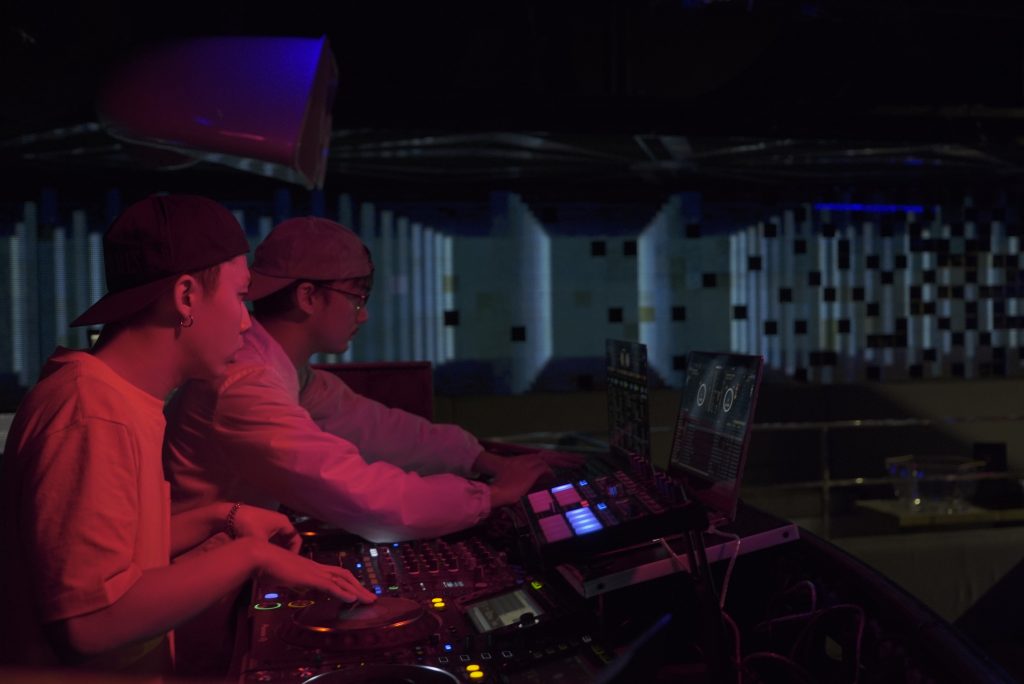
“With connections,” says Nicholas, “You can spin anywhere. Even if you’re just doing basic mixing, which can be learnt in two hours.”
‘Basic’ mixing, he explains, is an elementary style of DJing that is easier to learn than ‘open format’ mixing, which requires DJs to weave between different genres, styles, and eras of music.
EtracX members like Akmal and Nicholas perform open format mixing on the turntable; an instrument that uses the physical manipulation of two movable discs to create a diverse range of sounds that remix and add to existing tracks.
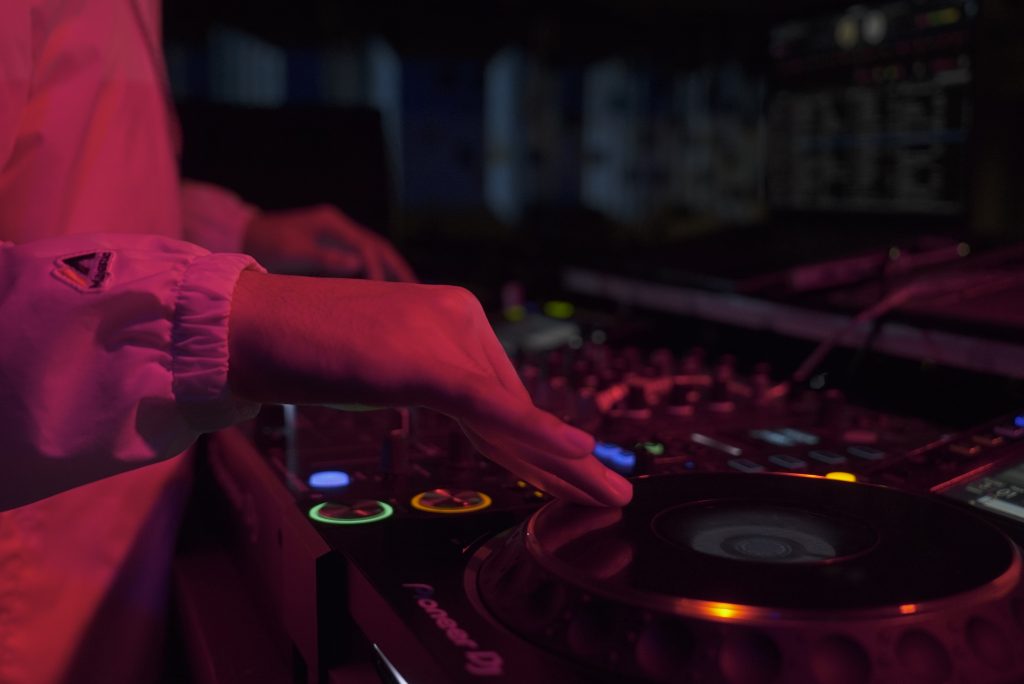
“Connections lor. If not how?”
Before going into the club, we make time for a quick cigarette.
“I’m not a smoker. I never buy my own pack,” Akmal says.
“Yeah, because you just take from us,” retorts Nicholas, passing him a stick. Akmal smiles apologetically.
The smoky club is a feature of local nightlife; misty, shrouded, dark. To non-clubbers like me, it’s associated with the cardinal sins of youth—drug abuse, promiscuity, alcoholism—which local DJs are sometimes caught engaging in. While I’m not an inherently judgemental person, I know that Akmal is a follower of Islam, and doesn’t partake.
Doesn’t he feel out of place performing music in such an environment?
“Think of it this way,” Akmal replies, “If I was a guitarist, I’d be playing at a bar. I can busk, I can release tracks, but if I want to perform live, regularly, it’s probably going to be there … Where else am I going to play?”
“It’s been like this since the middle ages, where bards used to go town to town, sing the poems of mighty kings who’d slain the dragons. They’d sing in taverns, and people were just like ‘dung-uh-dung-uh-dung’”, he says, moving his hands above his head in imitation of a dance.
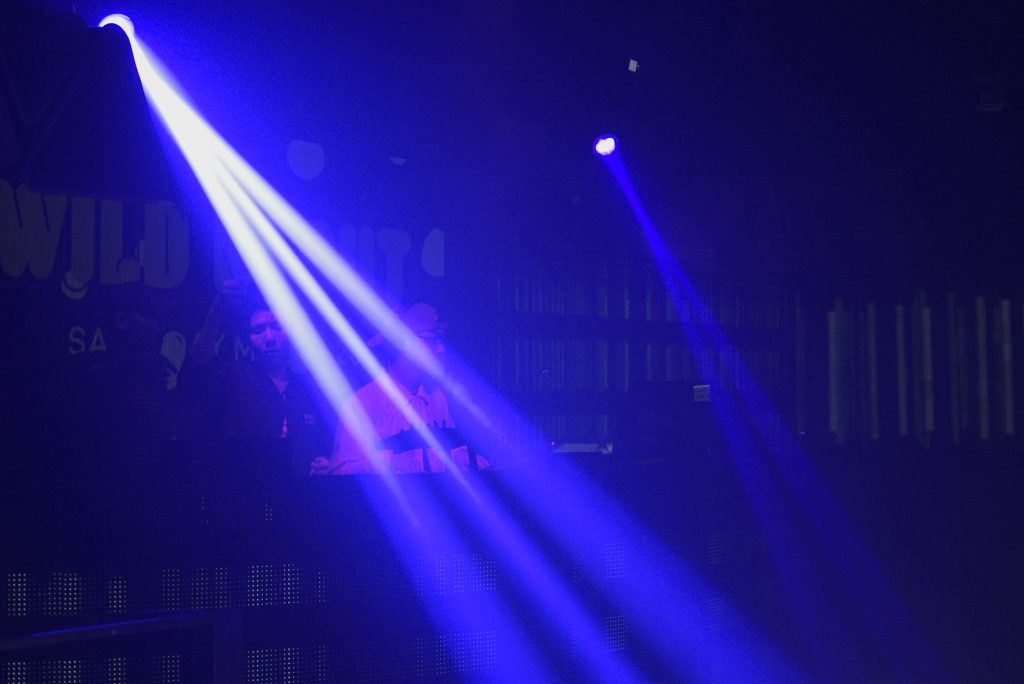
Akmal is passionate about DJing, but he’s not trying to turn it into a full-time job. He feels that remaining ‘underground’ will keep him free to pursue his vision: “If you want commercial, you can go anywhere. My purpose is not myself—it’s the people.”
Throughout our conversation, Akmal seems to be only half-listening to my questions; his mind is elsewhere, his attention caught by snatches of music playing in the background. Every now and then, his eyes glaze over and his head starts bobbing, as his ears tune in to the ever-present beat.
Before going up, I ask Akmal if he’s nervous for the night ahead.
“Now you ask me that, I’m a bit nervous—but I’m mostly really excited. Even on the MRT, when I listen to music, I’m thinking: what song goes with this, with that … I’m technically doing this every single day. It’s just natural for me, to play what I feel, and if I’m truly one with what I’m playing, I’ll just have fun with it.”
The lights dim, the speakers crackle to life; he flicks the discs, puts on his headphones, and begins to spin.
